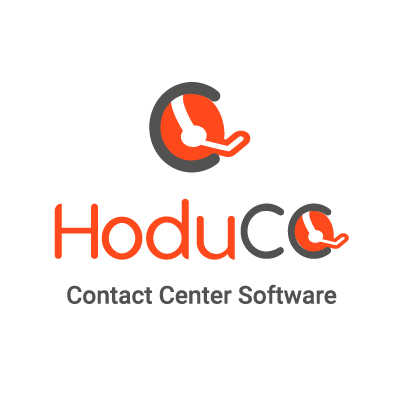Yes, most modern Automatic Call Distribution software is compatible with different devices and platforms. This feature allows agents to answer calls from their desktop, laptop, smartphone, or tablet, making it easier to manage calls from anywhere. Users can also access the software via several operating systems, including Windows, iOS, and Android. This adaptability provides consistent call handling and fast client support across all devices and platforms.
List of Best Automatic Call Distribution Software
Foniva is a contact center solution designed to revolutionize your customer service experience. With advanced features like call management, analytics, and reporting, Foniva empowers businesses to drive revenue, reduce costs, and improve agent produc...Read More Foniva
ClearTouch is a highly dependable and adaptable call center solution that offers a budget-friendly delivery approach. Our Always-on cloud delivery guarantees real-time access to the latest version of ClearTouch, making it the ideal choice for all typ...Read More ClearTouch
CALLBEE is a software solution preferred by 20+ organizations for optimizing their support teams. With user-friendly functionalities, smooth integration, and advanced data analysis, elevate your customer support and increase efficiency. Stay connecte...Read More CALLBEE
Experience CXone - a, AI-driven platform that empowers businesses to enhance customer interactions. By seamlessly integrating digital and voice channels, it provides agents with real-time insights and tools to deliver exceptional service, fostering s...Read More CXone
Transform your business communication with Vert-Age Auto Dialer. Streamline your calling process, increase productivity, and customize conversations with dynamic scripts. Discover the unparalleled features of automated dialing by trying it out at XEN...Read More Vert-Age Auto Dialer
VS Auto Dialer solution for streamlining outbound calls in your call center. With its customizable features and seamless integration with your CRM system, VS Auto Dialer automates the process of making multiple outgoing calls, boosting productivity a...Read More VS Auto Dialer
VoxDesk is a cloud-based contact center solution designed to assist businesses with various communication needs. With features like call scripting, automated dialing, and instant alerts, VoxDesk streamlines productivity and boosts efficiency. It also...Read More VoxDesk
Kit19 - your all-in-one solution for effortless integration of Machine Learning into your daily workflows. Our dynamic platform adapts to your changing needs, utilizing valuable data insights to anticipate your preferences and provide personalized su...Read More Kit19
Silver Surface, the premier customer management software for tele calling in Mumbai, India. With over 9 years of experience, our software has been perfected to deliver seamless solutions for tele marketing operations. Our advanced features and user-f...Read More Silver Surface
QuickBooks Online, the premier accounting software for entrepreneurs and business owners. Streamline your financial management with its intuitive interface, top-notch security measures, and cutting-edge features such as Online bank connectivity and W...Read More QuickBooks Online
BlueCloud, a state-of-the-art software designed to effortlessly manage high call volumes without the need for manual dialing. Its intuitive interface makes it accessible to users of all levels, with no specialized skills required. With its optimized...Read More BlueCloud
Allworx is a call management system designed to streamline your incoming calls. With a range of features including 10 queues and four distribution styles, such as linear priority and round-robin, each call is handled with precision. Improve your call...Read More Allworx
XenCALL, a cloud-based system specifically designed for sales and marketing firms. With its robust features such as telephony, IVRS, and a built-in CRM, managing leads and executing successful inbound and outbound campaigns has never been easier. Its...Read More XenCALL
Contaque Auto Dialer Software solution for optimizing your call centers performance and profitability. This software empowers your agents to make lightning-fast calls, resulting in improved productivity and increased sales. No more tedious manual dia...Read More Contaque Auto Dialer Software
Meet HoduCC Contact Center is a communication solution that leverages data to deliver a seamless experience across all channels – Voice, Video, Email, SMS, Live Chat, and social media. Our omnichannel capabilities integrate with popular platfo...Read More HoduCC Contact Center
Experience the leading cloud-based call center software with Talkdesk. Our innovative platform raises the standard for customer and agent interactions, providing top-of-the-line performance. Boost efficiency and streamline workflows with our advanced...Read More Talkdesk
Aavaz Call Center software, the ideal solution for marketing, sales, and customer support departments seeking a highly adaptable platform. Our software offers affordable inbound, outbound, and blended capabilities with a variety of features tailored...Read More Aavaz
Learn More About Automatic Call Distribution Software
- What Is Automatic Call Distribution Software?
- What Are The Recent Trends In Automatic Call Distribution Software?
- Benefits Of Using Automatic Call Distribution Software
- Important Factors To Consider While Purchasing Automatic Call Distribution Software?
- What Are The Key Features To Look For In Automatic Call Distribution Software?
- Why Do Businesses Need Automatic Call Distribution Software?
- How Much Time Is Required To Implement Automatic Call Distribution Software?
- What Is The Level of Customization Available In Automatic Call Distribution Software?
- Which Industries Can Benefit The Most From Automatic Call Distribution Software?
- Conclusion
What Is Automatic Call Distribution Software?
Automatic Call Distribution (ACD) software is a sophisticated technology that allows organizations to efficiently manage incoming phone calls from customers. It is a sophisticated telephone system that automates call routing to the best suited agent using established rules and criteria. ACD systems work by routing incoming calls to the most appropriate agent based on parameters such as agent availability, skill set, language, and call priority.
This guarantees that clients are linked to the appropriate person on the first call, resulting in faster resolution of their inquiries and a better overall customer experience. One of the primary advantages of ACD software is its ability to handle high call volumes efficiently and effectively. With a well-designed call routing plan, ACD software may evenly distribute calls across agents, resulting in shorter wait times and faster response times.
This is especially valuable for firms that handle a large number of calls, such as call centers or customer service teams. In addition to call routing, ACD software provides call queuing, interactive voice response (IVR), and real-time reporting. These capabilities enable businesses to optimize their call management processes, increase agent productivity, and acquire important insights into call analytics and trends.
Businesses considering investing in ACD software should think about scalability, integration possibilities with current systems, and customisation options. ACD software that can adapt to changing business needs and interact effectively with other technologies can assist boost overall efficiency and productivity.
What Are The Recent Trends In Automatic Call Distribution Software?
The demand for efficient and effective customer service has increased over time, prompting various advances in the call center business. Automatic Call Distribution (ACD) software, which has transformed the way calls are managed and handled in call centers, is one of the most significant advances in this field. Recent advances in ACD software have boosted its capabilities and improved the user experience.
The following are the leading trends in ACD software that customers should be aware of when considering this technology:
1. Omnichannel Support: With the rise of digital communication, customers want to contact with organizations across numerous channels, including phone, email, chat, and social media. ACD software has grown to offer omnichannel communication, allowing call center personnel to manage queries and requests across several channels with ease. This tendency is critical to satisfying customer expectations and delivering a consistent experience across all touchpoints.
2. Artificial Intelligence (AI) Integration: ACD software is increasingly being connected with AI technologies, like as chatbots and voice assistants, to improve call routing and offer clients self-service choices. AI allows calls to be routed to the most appropriate agent, and virtual assistants can answer common requests, freeing up human agents for more complicated duties. This trend has dramatically increased call center efficiency and cut caller wait times.
3. Real-time Analytics: ACD software now includes extensive analytics features that provide real-time data on call center parameters like as call volumes, wait times, and call durations. Managers can track these measures and make data-driven decisions to improve call center performance and identify areas that need attention. Real-time analytics also allow managers to change call routing rules on the fly based on call traffic and agent availability.
4. Cloud-based Solutions: With the rise of cloud technology, more firms are switching to cloud-based ACD software instead of traditional on-premise systems. This trend has numerous advantages, including cost savings, scalability, and accessibility from anywhere. Cloud-based ACD software also includes automated updates and maintenance, saving organizations the trouble of managing their own hardware and software.
5. Integration with CRM Systems: ACD software is now being integrated with Customer Relationship Management (CRM) systems, giving agents a complete picture of caller information and previous contacts. This connection improves the call handling process, allowing agents to give more personalized and efficient service to customers.
Benefits Of Using Automatic Call Distribution Software
Automatic call distribution (ACD) software is an essential tool for firms that need to efficiently handle large numbers of incoming calls. This software automates the process of routing and distributing calls to the proper agents, allowing firms to improve customer service, productivity, and, eventually, revenues. We will look at the different benefits of adopting automatic call distribution software and how it might help your organization.
Efficient Call Routing: One of the key advantages of ACD software is its ability to route incoming calls to the best-qualified operators. It accomplishes this by using specified criteria such as agent availability, skill set, and priority level. This eliminates the need for manual call distribution, which reduces wait times for customers and ensures that their calls are routed to the appropriate agents, resulting in increased customer satisfaction.
2. Increased Agent Productivity: ACD software provides a more organized and controlled call flow, allowing agents to handle more calls in less time. Automatic call distribution eliminates the need for agents to manually shift calls to the proper department or agent, allowing them to focus on other responsibilities such as managing consumer inquiries or resolving difficulties. This leads to increased productivity and efficiency in the workplace.
3. Real-Time Call Monitoring: Another benefit of using ACD software is the ability to track calls in real time. Supervisors can monitor call data such as wait times, call duration, and agent performance, allowing them to spot possible problems and make changes to improve overall call handling. This real-time monitoring also allows supervisors to swiftly intervene and assist with calls as needed, resulting in a more consistent client experience.
4. Improved Customer Experience: In today's competitive company environment, offering excellent customer service is critical for retaining existing customers and recruiting new ones. ACD software may significantly improve the customer experience by reducing wait times, optimizing call routing, and streamlining communication. Customers are more likely to have their requirements fulfilled quickly and efficiently, resulting in better levels of satisfaction.
4. Scalability And Flexibility: As your business expands, so will your call volume. ACD software is scalable and flexible, allowing you to simply add and remove agents as needed. Cloud-based ACD software is also easy to grow because it can be accessed from anywhere, eliminating the need for complex and costly hardware installations. This versatility ensures that your call center can keep up with your company's demands and expansion.
Important Factors To Consider While Purchasing Automatic Call Distribution Software?
When it comes to investing in automatic call distribution software, there are numerous crucial elements to consider to guarantee that you get the best solution for your organization. Let's look at some of the most significant elements to consider before making your pick.
1. Scalability: When selecting automatic call distribution software, one of the most important considerations is the solution's scalability. As your company expands, so will your call traffic and agent workforce; consequently, you will require software that can readily manage these changes without causing disruptions or incurring additional costs.
2. Customization: Because each organization has distinct demands and requirements, it is critical to select software that can be tailored to your individual needs. From call routing choices to call handling rules, the software should allow you to customize its features to fit your company procedures.
3. Reliability: When it comes to answering client calls, dependability is essential. Your automatic call distribution software should have a track record of reliability and availability, ensuring that you never miss a crucial call from a customer.
4. Integration: In today's business environment, it is critical for various software to function together effortlessly. When looking for automatic call distribution software, make sure it can interact with your current systems, such as CRM or helpdesk software, for a more streamlined and efficient operation.
5. Reporting And Analytics: A good automatic call distribution software should have thorough reporting and analytics tools that allow you to track call metrics, agent performance, and identify areas for improvement. This data can help you gain useful insights into your customer service operations.
6. User-Friendliness: The software should be simple to use and navigate for both agents and administrators. A convoluted and confusing interface can only lead to frustration and reduce productivity.
7. Customer Support: Finally, ensure sure the provider offers dependable customer service. In the event that problems happen or you require assistance, it is critical to have dependable support that can rapidly handle any issues and keep your business going efficiently.
What Are The Key Features To Look For In Automatic Call Distribution Software?
When looking for Automatic Call Distribution (ACD) software, there are a few important things to consider. These capabilities can significantly improve the productivity and efficacy of your call center operations. Here are the key features to look for in ACD software:
1. Intelligent Routing: ACD software should have intelligent routing capabilities, which allow it to quickly send incoming calls to the most appropriate agent based on characteristics such as skill level, availability, and previous interactions with the client. This guarantees that consumers are directed to the most qualified agent, which increases customer satisfaction.
2. Multi-Channel Support: In today's digital age, customers want to be able to contact businesses via multiple channels, such as phone, email, chat, and social media. Your ACD software should be able to manage many channels, ensuring a consistent customer experience throughout all communication channels.
3. Real-Time Monitoring and Reporting: ACD software should enable real-time monitoring and reporting on call activity, agent performance, and critical metrics like average handling time and call abandonment rate. This enables you to make data-driven decisions to better manage your call center and increase overall performance.4. Customizable Queues and Call Prioritization: Look for ACD software that allows you to create custom queues and prioritize certain sorts of calls based on your company requirements. This ensures that urgent calls receive priority over non-urgent ones, resulting in better customer service.
5. Interactive Voice Response (IVR): IVR enables callers to interact with an automated system to obtain basic information or do simple actions without having to speak with an agent. ACD software with IVR features can reduce customer wait times and increase overall call center efficiency.
6. Call Recording and Monitoring: ACD software should provide call recording and monitoring features, which allow you to review and analyze calls for quality and training purposes. This can help increase your agents' effectiveness and provide a consistent client experience.
7. Integration with Other Software and Tools: Your ACD software should be compatible with other tools and software that your company uses, such as CRM systems or workforce management software. This allows for a seamless transfer of client data and enhances overall operations.
Why Do Businesses Need Automatic Call Distribution Software?
In today's fast-paced corporate environment, excellent customer communication is critical to success. Automatic Call Distribution (ACD) software provides businesses with a comprehensive solution for managing incoming calls, resulting in rapid and efficient customer support. This easy-to-use system helps allocate incoming calls to the most appropriate agent, lowering wait times and streamlining call processing.
Here are the main reasons why firms use ACD software:
1. Improved Customer Service: ACD software connects clients to the appropriate agent promptly, minimizing wait times and increasing overall satisfaction. This results in improved client loyalty and repeat business 2. Improved Efficiency: ACD software automatically routes calls to the most relevant agent based on customized rules and queues. This lowers agents' idle time, boosts their productivity, and enables management to track and measure performance.
3. Streamlined Call Handling: ACD software enables agents to manage calls more successfully by providing them with the required customer information and tools to rapidly resolve issues. This results in a more organized and efficient call-handling process.
4. Flexibility and Scalability: ACD software is easily customizable to meet the unique needs of an organization. As the firm expands, the software may be scaled to handle more agents, lines, and features.
5. Cost Savings: Automating call distribution allows organizations to minimize the number of agents needed to take calls, resulting in cheaper labor expenses. Furthermore, ACD software supports thorough call analytics, enabling firms to identify areas for improvement and optimize resources.
6. Integration with CRM Systems: ACD software can be linked to Customer Relationship Management (CRM) systems, giving agents a complete picture of customer information, previous encounters, and purchase history. This allows agents to offer a more personalized and efficient customer experience. In today's extremely competitive market, firms are continuously looking for new methods to stay ahead. ACD software offers an all-in-one solution for managing incoming calls, improving efficiency, and raising customer satisfaction. With so many advantages, it is a must-have tool for enterprises of all sizes. So, if you want to deliver excellent service to your clients while also streamlining your call handling process, investing in ACD software is the best option.
How Much Time Is Required To Implement Automatic Call Distribution Software?
The time required to implement Automatic Call Distribution (ACD) software varies depending on several factors, including the system's complexity, the size of your firm, and the level of customization required for your individual needs. However, on average, the implementation phase can last from a few weeks to a few months.
Firstly, you will need to take into account the time needed for purchasing the software itself, which can range from a few days to a few weeks depending on your organization's procurement processes. Next, the real implementation process might take anywhere from 2-12 weeks, depending on the complexity of your call center and the features you wish to integrate.
The implementation process involves configuring the software, setting up call routing rules, integrating with your existing systems, and training your agents on how to use the software effectively. Furthermore, if you choose a cloud-based ACD solution, the implementation time may be reduced because there is no need to install and configure hardware on-premise.
However, if you opt for an on-premise solution, the installation and configuration process may take longer. It is vital to note that implementation time is also determined by your IT team's availability and cooperation throughout the process. They will need to collaborate closely with the ACD vendor to ensure a successful and efficient implementation.
What Is The Level of Customization Available In Automatic Call Distribution Software?
Automatic Call Distribution (ACD) software is a useful tool for firms who want to optimize their call management processes and improve customer experience. When deciding which ACD software to invest in, one critical factor to consider is the level of customization available. Simply put, customization refers to the capacity to modify software to your specific company requirements and preferences. The extent of customisation in ACD software varies widely between providers. Some software may just provide minimal customization choices, but others may provide a great deal of freedom and control.
Here are some important aspects to consider when assessing the extent of customisation in ACD software:
1. Call Routing Options: ACD software enables organizations to configure different call routing rules based on caller ID, IVR selections, and agent availability. The level of flexibility in call routing choices can have a considerable impact on call handling efficiency and overall customer experience. Look for software that provides a variety of call routing choices, including skill-based, time-based, and priority routing.
2. Call Queuing: In high-volume circumstances, call queuing is critical to ensuring that callers are not kept waiting for extended periods of time. A decent ACD software should let organizations personalize the queuing process, such as limiting the amount of callers in a queue, playing custom on-hold messages, and providing callbacks.
3. Integration With CRM And Other Systems: For firms that use CRM or other systems, the amount of customisation for integration is critical. ACD software should seamlessly integrate with these technologies, allowing businesses to access client data and give more tailored service.
4. Reporting And Analytics: The ability to generate personalized reports and analyze call data is critical for firms making data-driven choices. Look for ACD software that includes advanced reporting features and allows you to create custom reports.
5. Agent Settings: ACD software should allow users to modify call handling rules, agent availability, and break times. This level of personalization enables firms to create a better working environment for their agents while also increasing productivity. With these considerations in mind, it is clear that the degree of customization available in ACD software can have a significant impact on how efficiently and effectively a company handles its calls. As a result, it is critical to properly assess the customization options provided by various ACD software suppliers in order to determine the best fit for your company. Businesses that choose highly configurable ACD software can provide a superior call management experience for both their consumers and agents.
Which Industries Can Benefit The Most From Automatic Call Distribution Software?
Automatic Call Distribution Software, or ACD Software, is a vital tool for firms that get a large number of incoming calls. This program streamlines phone handling, increases efficiency, and boosts customer satisfaction. While ACD Software can assist a variety of sectors, there are a handful that can gain the most from its utilization.
1. Customer Service And Call Centers: ACD Software is necessary for customer service and call centers, where managing a huge volume of incoming calls is critical to business success. ACD software can assist allocate calls equitably among available agents, lowering customer wait times and enhancing overall call handling. In addition, ACD Software can give real-time monitoring and analytics, allowing management to monitor call volume and agent productivity.
2. Healthcare: In the healthcare industry, ACD Software can play a significant role in managing patient calls efficiently. This software can help to redirect calls to the appropriate department or specialist, decreasing wait times and ensuring that patients receive the care they require. ACD Software can also integrate with electronic health records, allowing agents to access patient information quickly and efficiently.
3. E-commerce & Retail: E-commerce and retail organizations can considerably benefit from ACD Software, particularly during peak periods such as sales and holidays. Using ACD Software, these firms can ensure that calls are routed to the appropriate department, lowering the likelihood of customers becoming frustrated and abandoning their call. This software can also provide useful insights about customer behavior and call trends, allowing firms to better their customer service strategy.
4. Financial Services: In the financial services industry, customer service is critical to retaining customers. ACD software can help to streamline call handling by lowering wait times and connecting customers to the appropriate representative. This program also offers advanced capabilities such as call recording and automatic call distribution, boosting the efficiency and efficacy of customer support.
5. Education: As more educational institutions use online learning and virtual classrooms, ACD Software has become an indispensable tool for answering consumer concerns and delivering support. ACD Software can help guide calls to the appropriate department, minimizing wait times for students and their families. This software can also be connected with other communication channels, such as chat and email, to provide a more seamless customer experience.
Conclusion
To summarize, automatic call distribution (ACD) software is an essential tool for any modern firm that wants to efficiently handle a high volume of incoming calls. It speeds the call routing process, boosts agent productivity, and enhances the overall customer experience. When selecting an ACD software, it is critical to analyze your specific company requirements and ensure that the capabilities available match them. Consider call routing capabilities, integration choices, reporting and analytics, and pricing. By carefully researching and selecting the appropriate ACD software, you can expedite your call management process, increase customer happiness, and ultimately drive business success. We hope this buyer's guide has supplied you with the necessary knowledge to make an informed selection.
Automatic Call Distribution Software FAQ's
Can Automatic Call Distribution Software Be Accessed Across Multiple Devices And Platforms?
Is Automatic Call Distribution Software Future-Proof and Adaptable To Emerging Technologies Like Ai, Blockchain or Iot?
Yes, the Automatic Call Distribution Software is future-proof and compatible with upcoming technologies such as AI, blockchain, and IoT. These developments are already being incorporated into the software to improve its capabilities and add sophisticated features for call routing and administration. The software's ability to interact with different communication channels, as well as its upgrade flexibility, allows it to stay up with the changing technology landscape and provide efficient call handling for enterprises of all sizes.
Is There A Free Trial Offered To Assess Automatic Call Distribution Software Before Committing?
Yes, many Automatic Call Distribution software providers offer free trials for potential customers to assess their software before making a commitment. This enables organizations to evaluate the software's features, user interface, and overall operation to verify that it fits their requirements. Free trials often run 14 to 30 days, providing enough time for firms to fully examine the program. It is critical to use free samples to make an informed decision before buying in Automatic Call Distribution software.
Does Automatic Call Distribution Software Offer Data Security Features And Meet Regulatory Compliance Standards?
Yes, most Automatic Call Distribution (ACD) software systems include data security features like encrypted connections, data encryption at rest, and user authentication. They also adhere to regulatory requirements such as HIPAA, GDPR, and PCI DSS to safeguard the security and privacy of customer information. This assists businesses in maintaining compliance and protecting critical information from cyber threats, resulting in a secure and dependable call handling procedure.
Can Automatic Call Distribution Software Integrate Seamlessly With Existing Tools And Platforms?
Yes, most modern automatic call distribution software works easily with existing tools and platforms. These software solutions can link to customer relationship management systems, help desks, IVR systems, and other critical business tools via open APIs and defined protocols. This integration allows seamless communication and effective call handling, which leads to better customer service and business efficiency.



















